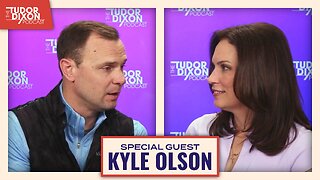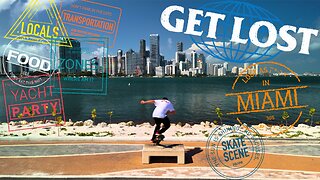Premium Only Content

Captains of Industry (ep30) Edward Henry Harriman
Edward Henry Harriman (February 20, 1848 – September 9, 1909) was an American financier and railroad executive.
Early life
Harriman was born on February 20, 1848, in Hempstead, New York, the son of Orlando Harriman Sr., an Episcopal clergyman, and Cornelia Neilson.[3] He had a brother, Orlando Harriman Jr.[5] His great-grandfather, William Harriman, had emigrated from England in 1795 and became a successful businessman and trader.
As a young boy, Harriman spent a summer working at the Greenwood Iron Furnace in the area owned by the Robert Parker Parrott family that would become Harriman State Park. He quit school at age 14 to take a job as an errand boy on Wall Street in New York City. His uncle Oliver Harriman had earlier established a career there. By age 22, he was a member of the New York Stock Exchange.
Career
Harriman's father-in-law was president of the Ogdensburg and Lake Champlain Railroad Company, which aroused Harriman's interest in upstate New York transportation. In 1881, at age 33, Harriman acquired the small, broken-down Lake Ontario Southern Railroad. He renamed it the Sodus Bay & Southern, reorganized it, and sold it to the Pennsylvania Railroad at a considerable profit. This was the start of his career as a rebuilder of bankrupt railroads.
A 1907 cartoon depicting Harriman and his railroads as subject to federal law and the Interstate Commerce Commission.
Harriman was nearly 50 years old when in 1897 he became a director of the Union Pacific Railroad. By May 1898, he was chairman of the executive committee, and from that time until his death, his word was the law on the Union Pacific system. In 1903, he assumed the office of president of the company. From 1901 to 1909, Harriman was also the president of the Southern Pacific Railroad. The vision of a unified UP/SP railroad was planted with Harriman. (The UP and SP were reunited on September 11, 1996, a month after the Surface Transportation Board approved their merger.)
A train crosses a bridge.
In 1910, the first passenger train crossed the Dumbarton Rail Bridge, a project championed by Harriman.
At the time of his death Harriman controlled the Union Pacific, the Southern Pacific, the Saint Joseph and Grand Island, the Illinois Central, the Central of Georgia, the Pacific Mail Steamship Company, and the Wells Fargo Express Company. [citation needed] Estimates of his estate ranged from $150 million to $200 million. That fortune was left entirely to his wife.
-
 DVR
DVR
BitLab Academy
43 minutes agoBitcoin Past $1 Million! Altcoin Ban! MSTR To Buy $84 Billion BTC!
2.22K -
 1:06:35
1:06:35
The Rubin Report
1 hour agoProtester Actually Thought She'd Outsmarted Tech CEO, Until He Asked This
25.2K19 -
 1:02:35
1:02:35
Geeks + Gamers
2 hours agoJeremy Renner Tells Marvel To F*ck Off, Thunderbolts In Theaters, GTA 6 DELAYED
53K5 -
 LIVE
LIVE
Flyover Conservatives
11 hours agoBill Belichick girlfriend, European Blackouts and 3 Tips to Grow Your Business | FOC Show
394 watching -
 1:01:56
1:01:56
Dr. Eric Berg
4 days agoThe Dr. Berg Show LIVE - May 2, 2025
19.2K3 -
 LIVE
LIVE
The Shannon Joy Show
2 hours ago🔥🔥Friday Freestyle LIVE With Shannon Joy! Ask Me Anything On The Open Live Chat!🔥🔥
220 watching -
 LIVE
LIVE
Film Threat
16 hours agoTHUNDERBOLTS* SPOILERS + TONS OF REVIEWS! | Film Threat Livecast
68 watching -
 37:14
37:14
Tudor Dixon
1 hour agoTrump's 100 Days: Michigan's Reaction | The Tudor Dixon Podcast
3.91K -
 1:01:06
1:01:06
VINCE
4 hours agoA Shocking Revelation About What's Coming Next | Episode 35 - 05/02/25
205K136 -
 16:58
16:58
SLS - Street League Skateboarding
7 days agoWorld's Best Skatepark, Amazing Spots, Nightlife, Food & More - Get Lost: Miami 🌴
25.7K1